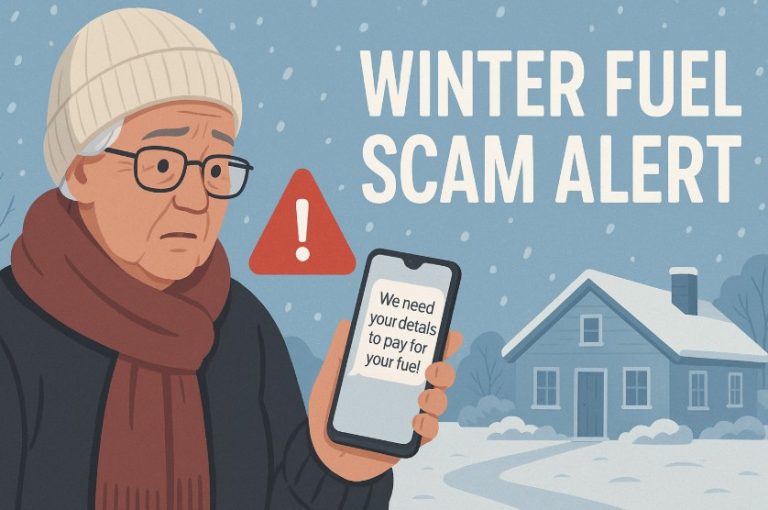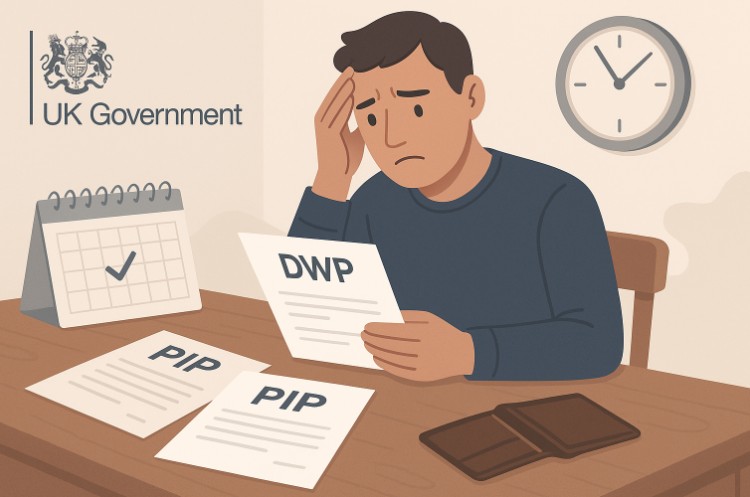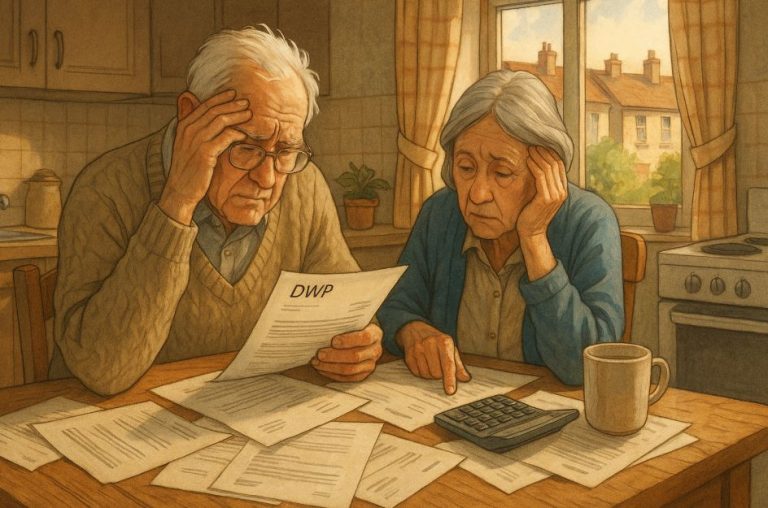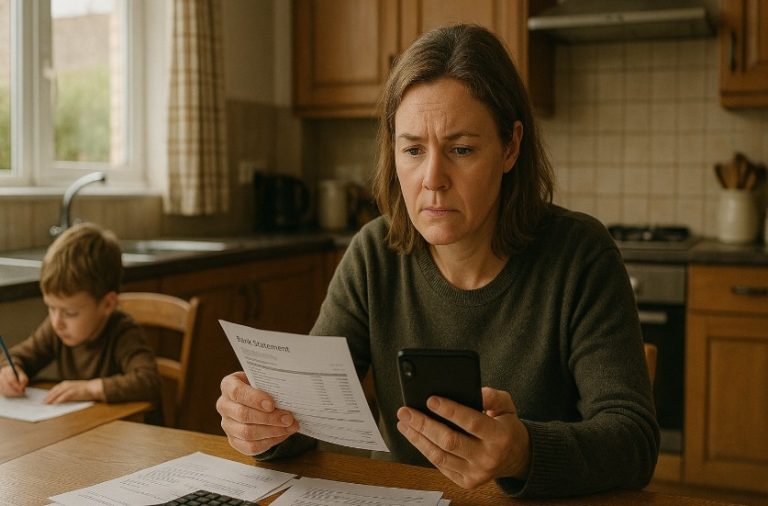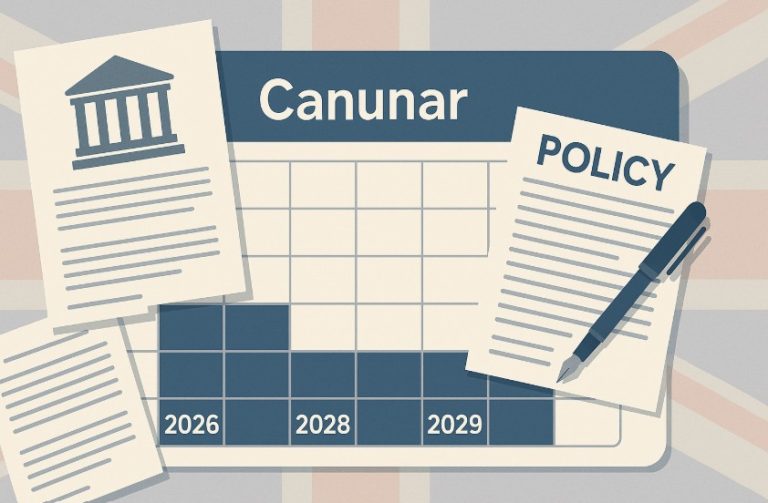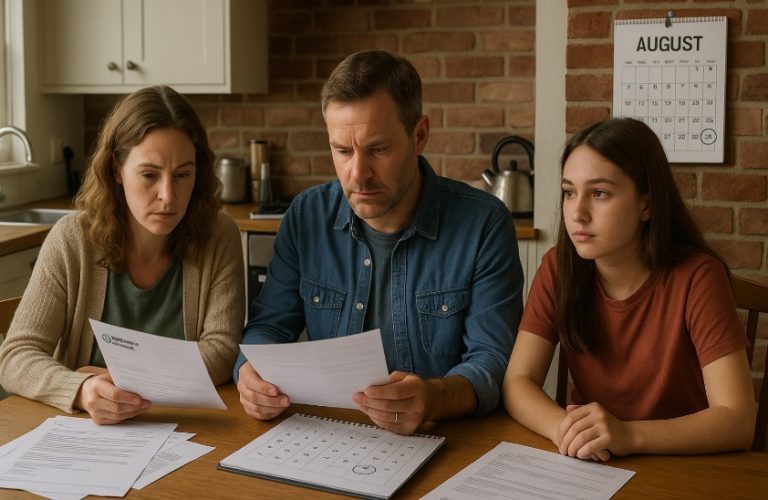Receiving Personal Independence Payment (PIP) can make a significant difference in managing daily life with a disability or long-term health condition.
However, a common question arises does PIP automatically entitle someone to free NHS prescriptions? Understanding how PIP interacts with other benefits and what qualifies a person for free prescriptions is essential for avoiding unexpected charges.
This guide offers a comprehensive breakdown of what counts, what doesn’t, and how to check your eligibility for NHS prescription cost exemptions in the UK.
What is Personal Independence Payment (PIP) and What Does It Cover?
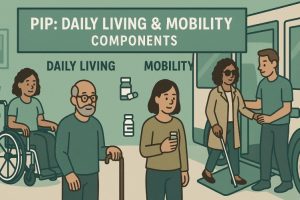
Personal Independence Payment (PIP) is a non-means-tested benefit available to individuals in the UK who live with a long-term illness, mental health condition, or disability.
It is designed to help cover the additional living costs associated with health-related limitations.
The payment is split into two components: the daily living component and the mobility component, both of which can be paid at either a standard or enhanced rate.
The assessment for PIP focuses on how the condition impacts the individual’s ability to perform everyday tasks rather than the condition itself.
What PIP does not include is direct support for medical or prescription costs. Although it provides financial aid that could be used toward healthcare expenses, it does not exempt a recipient from NHS prescription charges on its own. This distinction is key, as many mistakenly assume PIP includes automatic exemptions.
Does PIP Automatically Qualify You for Free Prescriptions?
In England, receiving PIP does not automatically entitle a person to free NHS prescriptions. Unlike means-tested benefits, PIP is not income-dependent and therefore does not factor into the eligibility criteria used by the NHS for exemption from charges.
For those who rely solely on PIP and do not receive any other qualifying benefit or exemption, prescriptions will need to be paid for out-of-pocket.
Exceptions apply only when PIP is accompanied by other qualifying benefits or the individual meets criteria based on age, income, or medical status.
In contrast, NHS prescriptions are free in Scotland, Wales, and Northern Ireland. This means that residents in these regions do not need to worry about exemption criteria, regardless of whether they receive PIP.
What Other Benefits Qualify You for Free NHS Prescriptions?
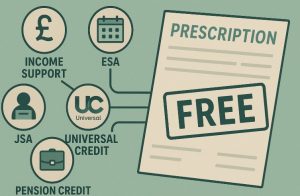
List of Income-Based Qualifying Benefits
In England, individuals may be entitled to free NHS prescriptions if they receive certain income-based government benefits. These are considered qualifying benefits because they reflect financial need, aligning with the NHS’s aim to protect low-income individuals from healthcare costs.
Here are the main benefits that grant automatic prescription charge exemptions:
- Income Support: A benefit for people on low incomes who are not required to sign on as unemployed.
- Income-based Jobseeker’s Allowance (JSA): Available to those actively seeking work but on low income.
- Income-related Employment and Support Allowance (ESA): For those who are unable to work due to illness or disability.
- Pension Credit Guarantee Credit: Helps pensioners on low income by topping up their weekly income.
- Universal Credit: Qualification depends on monthly earnings falling below a certain threshold.
Each of these benefits is assessed based on financial status, making them valid markers for NHS cost exemptions.
Universal Credit and Prescription Eligibility
Universal Credit (UC) has its own specific criteria. Not all UC recipients qualify automatically for free prescriptions. Eligibility depends on the income level during the last assessment period:
- If a person earns £435 or less per month, they may qualify.
- If a person earns £935 or less and the Universal Credit includes a child or limited capability for work element, they may also qualify.
Because UC fluctuates monthly, eligibility must be reassessed regularly. It is the responsibility of the individual to confirm their status each month, especially when claiming an exemption.
Prescription Eligibility by Benefit Type:
| Benefit Type | Eligible for Free Prescriptions | Criteria Description |
| PIP Only | No | Must qualify via other exemption criteria |
| Income Support | Yes | Automatically qualifies |
| Income-based Jobseeker’s Allowance (JSA) | Yes | Automatically qualifies |
| Income-related ESA | Yes | Automatically qualifies |
| Pension Credit Guarantee | Yes | Automatically qualifies |
| Universal Credit | Yes (conditional) | Must meet income thresholds |
What to Do If You Receive PIP and Need Support?
While PIP alone is not sufficient for free prescriptions, many people receiving it are also eligible for the NHS Low Income Scheme, a Medical Exemption Certificate, or additional qualifying benefits like Universal Credit.
It’s crucial for individuals on PIP to assess their complete financial and medical circumstances and apply for the appropriate exemptions. In many cases, even if PIP doesn’t qualify someone directly, they are still eligible through one of these alternative routes.
Can Age or Medical Conditions Make You Eligible for Free Prescriptions?
Individuals may qualify for free prescriptions based solely on age or the presence of a qualifying medical condition. In these cases, no income assessment is required.
People are automatically eligible if they are:
- Under 16
- Aged 16 to 18 and in full-time education
- Aged 60 or over
Those with certain medical conditions can also receive a Medical Exemption Certificate (MedEx), which covers all NHS prescriptions. Eligible conditions include:
- Diabetes (except where controlled by diet)
- Epilepsy requiring continuous treatment
- Cancer, including the effects of cancer or its treatment
- Hypoadrenalism (e.g. Addison’s disease)
- Hypoparathyroidism
Medical exemptions are issued via the patient’s GP. The certificate is valid for five years and must be renewed.
Pregnant individuals or those who have given birth within the last 12 months are also eligible through the Maternity Exemption Certificate (MatEx), issued by a doctor or midwife.
How Does the NHS Low Income Scheme Help With Prescription Costs?

The NHS Low Income Scheme (LIS) is designed for individuals who do not qualify for means-tested benefits but still struggle with healthcare costs due to low income.
Eligibility is assessed through an application process where total income, savings, housing costs, and household makeup are taken into account. Those who meet the criteria are issued a certificate that helps with various NHS charges.
Certificates available:
- HC2 Certificate: Provides full help with health costs
- HC3 Certificate: Offers limited help depending on financial assessment
Covered under the scheme:
- NHS prescriptions
- NHS dental care
- Sight tests and optical costs
- Travel costs for NHS treatment
NHS Low Income Scheme – At a Glance:
| Certificate Type | Prescription Charges | Dental Charges | Optical Costs | Travel Costs |
| HC2 | Fully covered | Fully covered | Fully covered | Fully covered |
| HC3 | Partially covered | Partially covered | Limited help | Partially covered |
You can apply by completing form HC1, which is available online or at your GP practice. Online applications often result in faster processing times.
How Can You Check If You’re Entitled to Free NHS Prescriptions?
To ensure you’re claiming correctly, the NHS offers a free online tool via the NHS Business Services Authority. This tool walks users through a series of questions and provides guidance on whether they qualify for free NHS prescriptions or not.
Using the eligibility checker involves:
- Visiting the NHSBSA cost checker online
- Selecting what kind of help you’re checking for
- Answering questions about benefits, income, age, and health status
- Receiving immediate feedback on eligibility
It’s important to have accurate information on hand, such as:
- Your Universal Credit statement (if applicable)
- Your income and savings
- Any certificates or benefit letters
The service also advises on how to apply for the appropriate exemption if you’re found eligible.
What Happens If You Incorrectly Claim Free Prescriptions?
Incorrectly claiming free prescriptions can lead to significant penalties, especially if done repeatedly. NHS systems often verify exemption status electronically, and discrepancies may result in a Penalty Charge Notice (PCN).
Consequences include:
- A penalty fine of up to £100
- Additional late payment charges
- The need to repay the original prescription cost
- Possible investigations for benefit misuse
To avoid this, individuals should ensure:
- Their exemption certificate is valid and current
- Any benefit changes are updated in NHS records
- They recheck their eligibility regularly, particularly if claiming Universal Credit, where income levels fluctuate monthly
If someone believes they have been wrongly issued a penalty, they may appeal by providing evidence of valid exemption at the time of collection.
What Other NHS Costs Can You Get Help With if You Receive PIP?

While PIP itself does not grant automatic exemptions from NHS charges in England, recipients may still qualify for support with other healthcare-related costs through additional schemes, certificates, or by meeting other eligibility criteria.
The key lies in whether the individual meets conditions for low income, specific medical exemptions, or receives other qualifying benefits alongside PIP.
NHS Dental Treatment
NHS dental services are not automatically free for those receiving PIP. However, if an individual also qualifies under one of the following, they may receive free dental treatment:
- They are receiving Income Support, Income-based JSA, Income-related ESA, or Pension Credit Guarantee Credit
- They have a valid HC2 certificate from the NHS Low Income Scheme
- They are under 18, or under 19 and in full-time education
- They are pregnant or have had a baby in the last 12 months, and hold a Maternity Exemption Certificate (MatEx)
PIP recipients who are financially struggling should consider applying for the NHS Low Income Scheme to help cover dental costs.
Eye Tests and Optical Support
Individuals on PIP may receive support for eye tests and optical care under certain conditions. They are eligible for a free NHS eye test if they:
- Are aged under 16, or 16–18 in full-time education
- Are aged 60 or over
- Have been diagnosed with certain eye conditions (e.g., glaucoma or diabetes)
- Have a family history of glaucoma (if aged 40+)
- Hold a valid HC2 certificate
Additionally, vouchers for glasses or contact lenses may be issued to those who qualify. These can significantly reduce the cost of prescription eyewear, which may otherwise be unaffordable on a low income.
Travel Costs for NHS Treatment
PIP recipients may be entitled to help with the cost of travel to and from NHS appointments, especially hospital services that are not provided locally.
To qualify for travel cost assistance, the individual must:
- Be referred by a GP or dentist for NHS treatment
- Hold a valid HC2 certificate
- Receive one of the qualifying benefits (e.g., Income Support, Pension Credit Guarantee Credit)
Travel costs are typically reimbursed under the Healthcare Travel Costs Scheme (HTCS). Claims must be submitted with proof of travel and treatment.
This is particularly helpful for individuals with mobility issues who may incur higher transport costs due to the need for taxis or specialist vehicles.
Prescription Prepayment Certificates (PPC)
Although not free, Prescription Prepayment Certificates (PPCs) are a cost-effective way for those who require frequent medication to manage their expenses.
For individuals on PIP who do not qualify for full prescription exemptions, PPCs can reduce overall costs. A PPC covers all NHS prescriptions for a set fee over a defined period:
- 3-month PPC: £31.25
- 12-month PPC: £111.60 (can be paid in instalments)
This option is especially helpful for people with chronic conditions who require regular medication but fall outside the standard exemption categories.
Wigs and Fabric Supports
Some patients receiving NHS treatment may be eligible for free wigs and fabric supports (such as abdominal or spinal supports) on the NHS. While these items are not typically considered prescription costs, they fall under broader NHS support services.
To be eligible, individuals usually must:
- Be receiving treatment for a medical condition that warrants the item
- Hold a valid HC2 certificate or be receiving a qualifying benefit
- Be referred by a consultant or specialist
This form of support is particularly relevant for cancer patients undergoing chemotherapy or radiotherapy, as well as individuals requiring orthopaedic support.
Conclusion
PIP alone does not grant automatic entitlement to free NHS prescriptions in England. However, many people receiving PIP may also qualify for other benefits or exemptions that do provide free prescriptions or assistance with NHS costs.
By understanding how benefits interact and using tools like the NHS eligibility checker, individuals can avoid unnecessary charges and access the support they’re entitled to.
Frequently Asked Questions
What documents prove free prescription eligibility?
Typically, you will need to show an exemption certificate such as a Medical Exemption (MedEx), Maternity Exemption (MatEx), or a valid HC2/HC3 certificate. Those on income-based benefits may also be verified electronically.
Is the NHS Low Income Scheme available UK-wide?
No, the NHS Low Income Scheme is applicable only in England. Wales, Scotland, and Northern Ireland have different health cost support systems.
Can I get free dental care with PIP?
Only if you also qualify under other schemes or benefits such as the NHS Low Income Scheme. PIP alone does not grant dental cost exemptions.
Does PIP qualify me for an NHS medical exemption certificate?
No, medical exemption certificates are based on specific health conditions, not on whether you receive PIP. A GP must issue them based on qualifying conditions.
How long does it take to get an HC2 certificate?
Processing usually takes around 2 to 4 weeks after submitting the HC1 form, though online applications may be processed faster.
What if I live in Wales or Scotland do PIP rules change?
In Wales and Scotland, all prescriptions are free, so there’s no need to qualify through PIP or other benefits.
Can students on PIP get free prescriptions?
Only if they meet other exemption criteria such as age (under 19 and in full-time education), income level, or specific health conditions. PIP alone is not sufficient.

